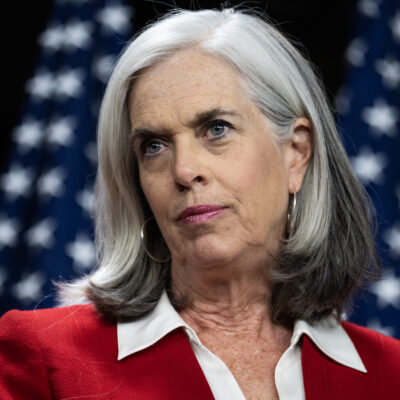
Hans Pennink/AP
Alessandra Biaggi is carving her own path
The outspoken New York State senator is already being floated as a potential successor to embattled Gov. Andrew Cuomo
Alessandra Biaggi was, in some respects, repaying a debt of gratitude when she stood beside Scott Stringer as he launched his campaign for New York City mayor last September in Upper Manhattan. The young progressive lawmaker, then finishing her...






